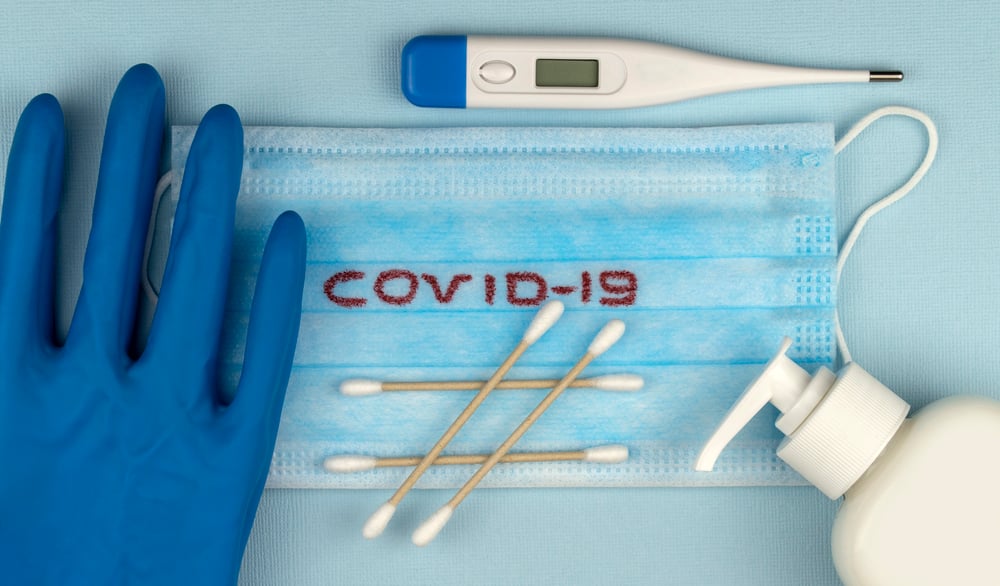
Migraineurs know how to self-isolate. With the threat of coronavirus literally in the air, the need for everyone to follow suit is essential. Also, you may be wondering if there is anything specific about the relationship between migraines and coronavirus.
As of yet, not enough research has been done to answer your question. COVID-19, the strain of coronavirus causing this pandemic, is a new illness for humans. Everyone is scrambling to make sense of it while tending to those who are sick.
However, the American Migraine Foundation produced an article about the intersection of migraines and COVID-19 that can help us all through this trying time.
What You Need to Know About Migraine and Coronavirus
Unfortunately, much remains unknown about COVID-19 itself. Experts say we have most certainly not seen the full impact yet. Obtaining information about how to conduct life under shelter-in-place or stay-at-home regulations is an integral part of reducing your stress level. And stress, as you all know, is often a trigger for migraines.
According to Dr. Mia Minen, a headache specialist and epidemiologist, there are seven considerations for migraineurs along with general practices to maintain good physical and mental health:
- Maintain an adequate supply of medication
- Consider alternatives for face-to-face visits to your healthcare provider
- Follow a routine and diet that reduces your migraine triggers
- Limit stress and remain as calm as possible
- Look for alternatives to social interaction
- Practice social (physical) distancing
- Maintain good hygiene, especially hand washing
Keep supplies on hand of both your acute and rescue medications as well as any preventatives you take. Work with your physician and insurance company to determine the best way to prepare.
Many healthcare providers have already put into place methods of limiting in-person exposure. If you are stable, doing well, and have adequate medication, contact your physician by email, phone, or patient portal to see if you need to keep any appointments; some offices have already canceled appointments and notified patients. Telemedicine may be another alternative.
If you weren't working from home before, you might be now. Try to stick to a regular schedule of sleeping, working, and eating. Don’t allow yourself to become dehydrated or too hungry. Also, be careful what you bring back from the grocery store — stick to fruits and vegetables and leave the chips on the shelf.
As always, make sure the food you eat doesn’t contain migraine triggers for you.
More people are stressed right now. Find some way to keep yourself from worrying about what's happening in the world. Meditate. Perform the hobbies you enjoy. Don't spend hours on social media or news sites. Take one day at a time.
While you shouldn’t spend too much time on social media, it can be a way to keep up with friends, family, and neighbors. Video chats help because you can see the person you are talking to. Take online education classes or join an interactive webinar.
As recommended by the federal and many state and local governments, practice what is called social distancing. Older people and those with chronic conditions such as diabetes, hypertension, and immunosuppression are at higher risk.
Remain at least six feet away from others when out in public. Only go out for essential items. And please disinfect high-touch surfaces.
The best defense against any germ is proper handwashing. Wash your hands with soap and water for at least 20 seconds. Time it with a favorite song if you're tired of Happy Birthday. If soap and water aren't available, use hand sanitizer until you can get to a sink.
More On Social Distancing
Once COVID-19 hit American shores, it became impossible to stop the spread completely. But you can slow it down and “flatten the curve” by keeping away from other people.
The tricky thing about this pandemic is that not everyone exhibits symptoms yet can still spread the virus. In fact, the virus spreads even before someone shows symptoms. Also, current intelligence says when the illness appears to be over, an individual may still pass the virus.
What do you do?
- Work from home if you can or need to
- Keep your children at home if possible. Many schools have gone to online learning
- Stay away from shared public spaces or public events
- Eat at home. Most restaurants are closed to dining in, anyway
- Go to the store during off-peak hours
- Maintain a six-foot distance between yourself and others
Many stores, pharmacies, and healthcare facilities are helping you keep your distance with tape on the floor or other signs to help people stay separated. Most that remain open ask that you come alone and leave your family at home.
Why is this so important?
By separating people, you limit the potential for the virus to spread. The less the virus spreads, the fewer people become ill. Even if you are not part of a high-risk group, consider that you could spread the virus to someone who is, even though you don’t mean to.
You don’t need to remain indoors at all times. Going outside and getting exercise and fresh air can reduce the risk of migraines. Stay away from crowded parks and walking trails. If you see someone coming, maintain the six-foot distance. That person will understand.
What About Protective Gear?
If you are immune-suppressed or in a high-risk category, wearing a mask while you are in public and thoroughly washing your hands often will help keep you and others safe.
If you think you are ill with coronavirus, check your doctor’s website or that of the local healthcare facilities. Many ask you to call or take advantage of telemedicine instead of coming to the office. At the least, doctors are asking you to call ahead with your suspicions so they can take steps to reduce the risk at their end.
You may not feel lucky to have migraines, but they don’t put you into a high-risk category. Your challenge is to limit your exposure and stress, maintain regular meals and sleep, and get exercise when you can.
We’re all in the same boat, but if we all work together, we can get through this.



